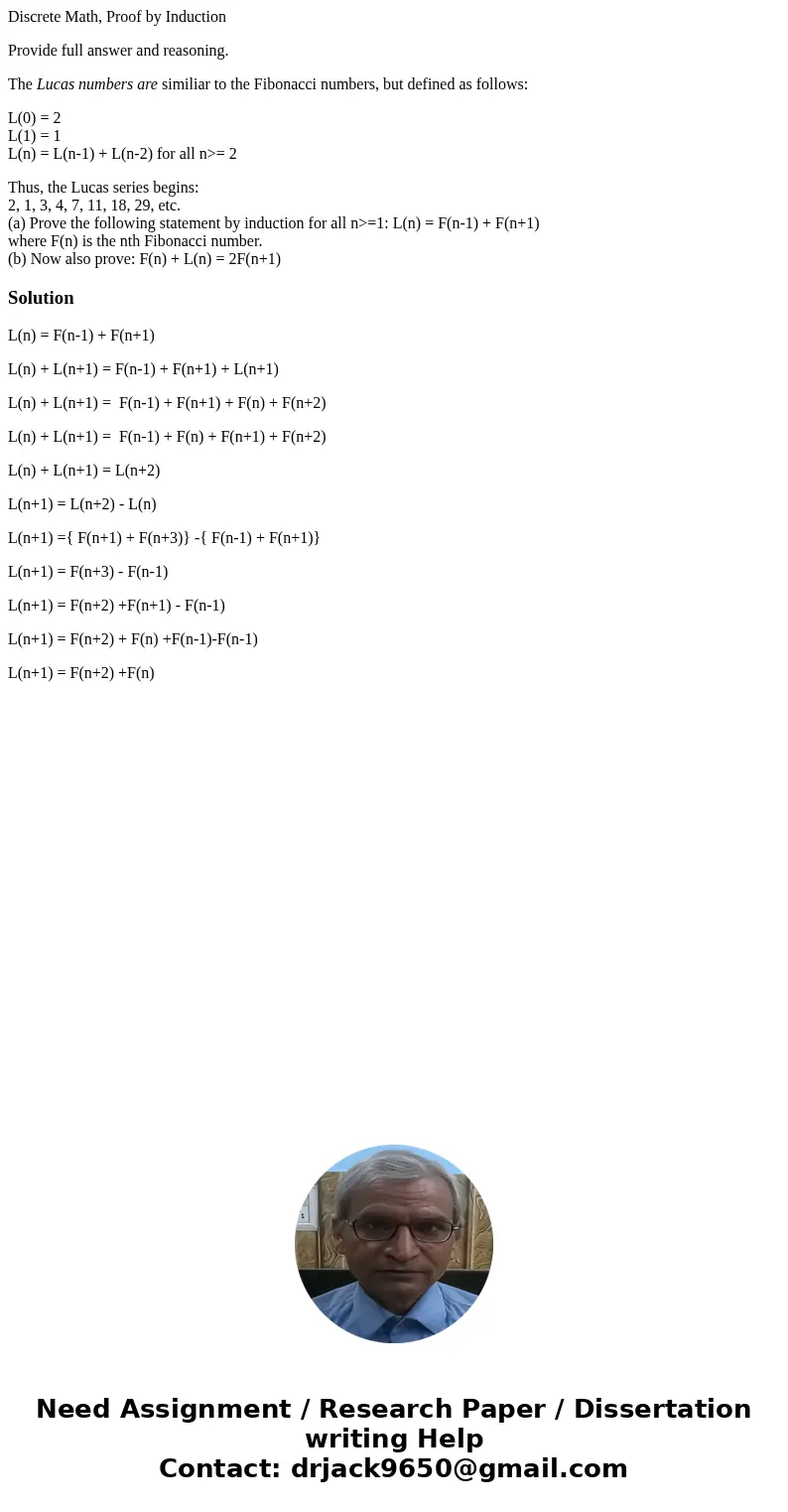Discrete Math Proof by Induction Provide full answer and rea
Discrete Math, Proof by Induction
Provide full answer and reasoning.
The Lucas numbers are similiar to the Fibonacci numbers, but defined as follows:
L(0) = 2
L(1) = 1
L(n) = L(n-1) + L(n-2) for all n>= 2
Thus, the Lucas series begins:
2, 1, 3, 4, 7, 11, 18, 29, etc.
(a) Prove the following statement by induction for all n>=1: L(n) = F(n-1) + F(n+1)
where F(n) is the nth Fibonacci number.
(b) Now also prove: F(n) + L(n) = 2F(n+1)
Solution
L(n) = F(n-1) + F(n+1)
L(n) + L(n+1) = F(n-1) + F(n+1) + L(n+1)
L(n) + L(n+1) = F(n-1) + F(n+1) + F(n) + F(n+2)
L(n) + L(n+1) = F(n-1) + F(n) + F(n+1) + F(n+2)
L(n) + L(n+1) = L(n+2)
L(n+1) = L(n+2) - L(n)
L(n+1) ={ F(n+1) + F(n+3)} -{ F(n-1) + F(n+1)}
L(n+1) = F(n+3) - F(n-1)
L(n+1) = F(n+2) +F(n+1) - F(n-1)
L(n+1) = F(n+2) + F(n) +F(n-1)-F(n-1)
L(n+1) = F(n+2) +F(n)

 Homework Sourse
Homework Sourse